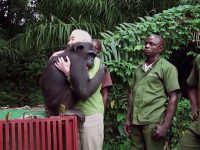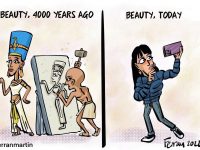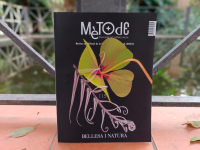Citizen science enters the scene in the new Mètode monograph
Volume 108 explores social participation in scientific research

The collaboration of citizens in the creation of scientific knowledge has been gaining importance in recent years, in line with the idea of more open and democratic science. The new Mètode issue, published by the Vice-Rectorate for Research of the University of Valencia, is devoted precisely to analysing this issue from various perspectives. An opinion article by Susanna Priest, director of Science Communication, reflects on the challenges involved in this participation in the current pandemic context.
The monograph «Citizen Science. Society takes centre stage» has been coordinated by Ana Delicado (ICS-UL) and Isabel Mendoza-Poudereux (UV), with the collaboration of specialists who address citizen participation in science from different perspectives. Josep Perelló (UB) highlights the role of social citizen science to empower participants and promote actions based on co-created knowledge. Emilia López-Iñesta (IDAL/ETSE-UV), Miguel Ángel Queiruga-Dios (Universidad de Burgos), Daniel García-Costa (IDAL/ETSE-UV), and Francisco Grimaldo (IDAL/ETSE-UV) highlight the opportunities for scientific literacy and education in sustainability provided by citizen science projects. Yasuhito Abe (Universidad de Komazawa, Japan) takes concepts from media ecology to reflect on radiation measurement devices in citizen science practices after the Fukushima nuclear disaster. The monograph is rounded off by the coordinators, together with Jussara Rowland (ICS-UL), Empar Vengut-Climent (UV), and Edurne Gaston (AECC).
The new publication also features the collaboration of the Valencian illustrator and graphic designer Diego Mir, author of the cover and interior dividers, with the series «Citizen Science», created for the occasion.
Pandemic, social context, and territory
In addition, in issue 108 of our journal, we interview Carlos Hermenegildo, Vice-Rector for Research and Full Professor of Physiology at the University of Valencia, who reviews the impact of the pandemic on research but also the efforts made by the University’s research and employment staff to face this challenge. We also review the career of the biologist Ramon Folch, author of the latest book published by Mètode, Abecedari socioecològic. Simón Fos and Emili Laguna bring us closer to flora micro-reserves, an environmental protection figure that has existed for more than a quarter of a century. Fernando Maestre, winner of the Jaume I award for Environmental Protection and an expert in desertification processes, talks about his research, sustainability, and how to create a healthy laboratory environment. Carlos Cano-Barbacil, Johannes Radinger, and Emili García-Berthou invite us to learn more about Iberian continental fish species, while Daniel Climent and Carles Martín Cantarino explore the presence of plants in modernism.
Finally, we have the usual sections and columns by Xurxo Mariño, José Miguel Mulet, Enric Marco, Roberto García-Roa, Ricard Guerrero, Mercè Berlanga, Chantal Ferrer Roca, Gemma Marfany, M. Alma Bracho, Pere Estupinyà and Ramon Folch.





